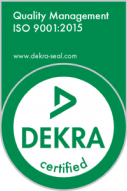In today’s dynamic business environment, organizations face many challenges, from regulatory changes to emerging risks. Effective Governance, Risk, and Compliance (GRC) practices are essential for navigating these complexities and ensuring long-term success. In this blog post, we’ll explore the importance of GRC and how it can benefit your organization.
What is GRC?
GRC stands for Governance, Risk, and Compliance. It is a structured approach to aligning IT with business objectives, managing risk, and meeting compliance requirements. By integrating these three components, organizations can create a cohesive strategy that enhances decision-making, reduces risks, and ensures regulatory compliance.
The Importance of GRC
- Enhanced Decision-Making: GRC practices provide a framework for making informed decisions that align with your organization’s strategic goals. By understanding risks and compliance requirements, leaders can make better choices that drive growth and stability.
- Risk Management: Effective GRC practices help identify, assess, and mitigate risks before they become significant issues. This proactive approach ensures that your organization is prepared for potential threats and can respond swiftly to minimize impact.
- Regulatory Compliance: Staying compliant with industry regulations is crucial to avoid penalties and maintain your organization’s reputation. GRC practices ensure that your organization meets all regulatory requirements, reducing the risk of non-compliance.
- Operational Efficiency: By integrating governance, risk management, and compliance into a unified framework, organizations can streamline processes and improve operational efficiency. This holistic approach reduces redundancies and ensures that all departments are working towards common goals.
Key Components of GRC
- Governance: Governance involves establishing policies, procedures, and controls to guide your organization’s operations. It ensures that all activities align with your strategic objectives and regulatory requirements.
- Risk Management: Risk management involves identifying, assessing, and mitigating risks that could impact your organization. This includes everything from financial risks to cybersecurity threats.
- Compliance: Compliance ensures that your organization adheres to all relevant laws, regulations, and standards. This includes industry-specific regulations as well as broader legal requirements.
Leverage Columbia Advisory Groups GRC in Your Organization
- Develop a GRC Framework: Columbia Advisory Group starts by developing a comprehensive GRC framework that outlines your organization’s Security Program, Plan, and Risk Register. This framework will be tailored to your specific needs and industry requirements.
- Conduct Risk Assessments: Columbia Advisory Group will work with the client to assign roles and responsibilities for business, application, and system owners. Columbia Advisory Group will design risk assessments to assess potential threats and vulnerabilities. This information will be used to develop strategies for mitigating risks and improving your overall security posture.
- Ensure Continuous Monitoring: Columbia Advisory Group will conduct monthly external vulnerability scans and bi-annual internal vulnerability assessments to stay ahead of emerging risks. Annual security controls audits will identify deficiencies and provide recommendations for remediation. Tracking regulation and legislation will help Columbia Advisory Group prepare the organization for regulatory changes. This proactive approach allows you to respond quickly and effectively to any issues.
- Foster a Culture of Compliance: Columbia Advisory Group strives to encourage a culture of compliance within your organization. Weekly security meetings are used to discuss the current cybersecurity landscape and knowledge transfer. Columbia Advisory Group’s goal is to ensure that all employees understand the importance of GRC and their role in maintaining compliance.
Conclusion
Effective Governance, Risk, and Compliance (GRC) practices are essential for navigating the complexities of today’s business environment. By integrating these components into a unified strategy, organizations can enhance decision-making, manage risks, and ensure regulatory compliance. Columbia Advisory Group can help implement GRC practices in your organization today to safeguard your future and achieve long-term success.

